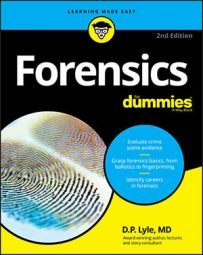You're probably familiar with the TV series CSI: Crime Scene Investigation and its many spin-off shows. How could you not be? Though they more often than not get the science right, they create an unrealistic picture of what a crime lab looks like, how well equipped it is, and what CSI and lab techs actually do.
But, like other more scientifically based shows like Forensic Files, for example, these shows have raised public awareness of forensic science and introduced viewers to the world of forensic investigation.
One unintended consequence of these shows and the raised public awareness of forensic science procedures is the CSI Effect. Though controversial as to whether it actually exists, many experts believe it does, while others feel it doesn't.
Regardless, it makes sense that saturating the public with all this forensic science would naturally change its view on criminal investigation and prosecution. Those who support the existence of this effect point to three major areas: the public, and thus jurors; judges, prosecutors, and defense attorneys; and criminals.
Whenever a high-profile case pops up on the news, the public seems to immediately jump to whether there is DNA evidence or not. If there is, the suspect must be guilty, and if not, he must be innocent.
The facts are that DNA analysis is only relevant in a very small percentage of cases, perhaps as low as 5 percent. Most crimes are solved by good police work, not the crime lab. This attitude naturally enters the courtroom where jurors are asking the same question: Why is there no DNA? Did the police do something wrong by not collecting it? Is there no DNA because the defendant is innocent?
You can see how this complicates the job of prosecutors and defense attorneys. If jurors expect forensic evidence to be presented to support their cases, these attorneys need to explain any absence of such evidence.
And what about criminals? They watch these shows. They learn what law enforcement and crime labs can do. They wear gloves when breaking into a home to avoid leaving fingerprints, they wear condoms in rapes to avoid leaving behind DNA evidence, and they take other steps to avoid detection.
Fortunately, a little knowledge is a dangerous thing, and criminals may avoid leaving behind one type of evidence while ignoring other, equally damning, evidence. And that's a good thing.

